news
Breaking : Tinubu signs $10 billion Executive Order to unlock fresh investment in oil and gas, Says Gbajabiamila
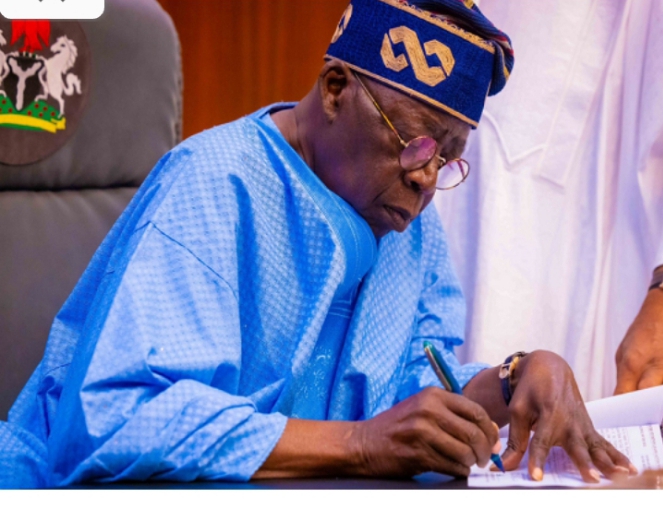
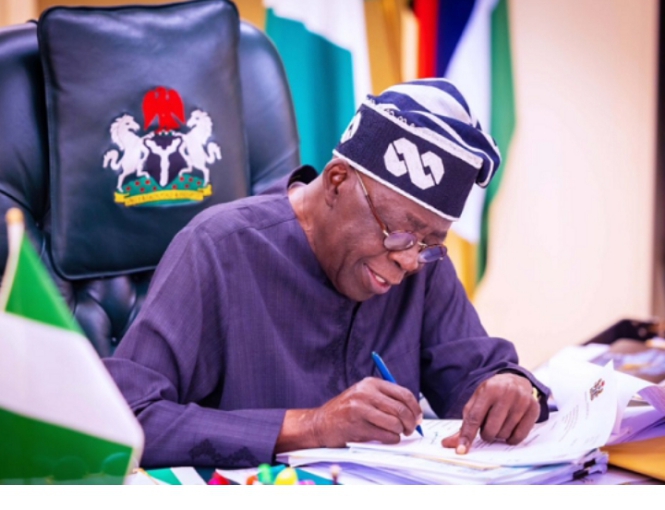 President Bola Tinubu said on Tuesday, April 30, that he recently signed an Executive Order that to unlock about $10 billion in fresh investments in the nation’s oil and gas sector.
President Bola Tinubu said on Tuesday, April 30, that he recently signed an Executive Order that to unlock about $10 billion in fresh investments in the nation’s oil and gas sector.
Speaking at a opening of a two day retreat on economic transformation and development organised by the House of Representatives, the president said the development is expected to happen through Fiscal Incentives for Non-Associated Gas (NAG), Midstream and Deepwater Oil & Gas Developments.
Represented by his Chief of Staff, Femi Gbajabiamila, the president also disclosed that just last week, the Nigerian government signed the consolidated guidelines for implementing Fiscal Incentives for the Oil & Gas Sector.
According to him, the guidelines, which represent a cornerstone of the Presidential Directive, aim to enhance the Nigerian oil and gas sector’s global competitiveness while stimulating economic growth.
He said further that “the Executive Order also streamlines contracting processes, procedures, and timelines from 36 months to 6 months. The order also seeks to ensure that local content requirements are implemented without impeding investments or the cost competitiveness of oil and gas projects”.
Related to this, the President said are the reforms being implementing to the nation’s tax regimes to limit taxes collected without negatively affecting government revenues.
He said: “All of these have the same objective – to reduce government interference with the commercial imperatives of businesses in the country so that businesses based here can be competitive and focus on their core objectives of economic growth through innovation and trade.
“We will need the support of the National Assembly to fully implement some of these reforms, as statutory changes will be required in some areas.
“I am confident that when the time comes, the governing partnership we have established between the Executive and the Legislature will ensure that these changes are effected swiftly to benefit our nation.”
The president said despite the sceptics, the productive collaboration between the executive, the House, and the Senate has yielded significant results with the successfully passage of numerous bills aimed at enhancing the welfare of Nigerians.
He expressed appreciation to the leadership of the National Assembly for their swift action in considering and passing the Student Loans (Access to Higher Education) (Repeal and Reenactment) Act 2024.
He said: “Your actions have substantially fortified the legal framework of the Students Tertiary Education Loan Program, ensuring its efficient implementation. These achievements are a testament to the power of our partnership and the positive impact it can have on our nation.
“In a World Bank document titled “Legislative Oversight and Budgeting: A World Perspective,” Thomas Frederick Remington wrote “for legislators to effectively fulfil their roles of representation, oversight, and law-making, a certain level of cooperation between the Legislature and the Executive in policymaking is essential.
“The legislature must have the capacity to monitor the executive, and the executive, in turn, should be willing to comply with the legislative enactments.
“It is not just a coincidence but a strategic advantage for our country that the governing relationship between the Executive and the Legislature perfectly reflects this ideal.
“As you know, my administration is implementing significant policy changes to reform how we govern and position our country for progress and shared prosperity for all citizens.
“These reforms, while necessary and, in some cases, long overdue, are not without their challenges. I am deeply grateful for your unwavering support and understanding during these times. Your understanding and support have been invaluable, and I am confident that with our continued collaboration, we can overcome any challenges that lie ahead.
“The oil and gas industry has long been the lifeblood of our national economy. My administration is working tirelessly to change this and diversify our economy from overreliance on the production of fossil fuels. However, we are also determined to maximise revenue potential from this critical industry.
“For this reason, we are pushing policies to attract investment in the oil and gas sector”.
The President also said: “we can only justify our collective mandate and the trust our people repose in us through constructive collaboration between the National Assembly and the Executive. This joint effort is the minimum the people who voted for us expect from us.
“However, the very essence of checks and balances means there will be times when the executive and legislative prerogatives inevitably collide. Above all else, the national interest must guide our decisions in those moments. We share a common responsibility in shaping the future of our nation, and it is through our collaboration that we can effectively fulfil this duty.
In his address at the event, Speaker of the House of Representatives, Abbas Tajudeen said the House made a deliberate decision to focus on tax reforms and modernisation as well as a review of the implementation of the Petroleum Industry Reform Act (2021), adding that the overarching objective is to discuss and identify concrete legislative strategies for economic transformation.
The Speaker said further that the commitment and foresight shown by the government in addressing economic challenges deserve commendation, adding that “it is imperative that we, as legislators, align our efforts to support and enhance these endeavours.”
He said by designing and implementing progressive tax policies, the nation strive to ensure a fair and efficient tax system that boosts revenue while fostering economic growth and equity.
This, he said involves not only broadening the tax base and simplifying tax codes, but also enhancing compliance and minimising loopholes that benefit only the wealthy.
According to him, the retreat aims to foster stakeholder engagement, ensure constructive dialogue, exchange ideas and offer insights on legislative strategies that will contribute to the economic transformation of our country.
He said further that the retreat allows the lawmakers to take a deep dive into the tax reforms instituted by President Tinubu and undertake a review of the implementation of the Petroleum Industry Act (2021).
He said the House consider these two initiatives vital in our nation’s quest for economic recovery, transformation and growth. The two areas speak to both the oil and non-oil sectors of the Nigerian economy.
The Speaker lamented that Nigeria, Africa’s most populous nation, has long been grappling with issues related to tax collection and revenue generation with Nigeria’s general government revenue was recorded at 7.3 per cent of GDP, which is significantly lower than the average revenue of countries in the ECOWAS.
He said Nigeria’s fiscal revenue has declined, predominantly due to decreasing oil revenue over the last ten years, while non-oil revenue has remained stagnant at about 4-5 per cent of GDP.
He said further that Nigeria’s tax revenue struggles are primarily due to narrow bases for indirect taxes, low compliance rates among taxpayers, substantial tax exemptions, and generally low tax rates.
He said ‘This situation is compounded by a lack of enthusiasm and morale for tax compliance, contributing to the nation’s underwhelming fiscal performance. Comparatively, Nigeria’s efficiency in collecting Value Added Tax (VAT) is the lowest among its African peers, indicating significant inefficiencies in its tax system.
“This trend of low tax revenue, coupled with a continued dependency on the increasingly unstable oil revenue, presents a major risk to Nigeria’s fiscal sustainability. It also highlights an important area for potential reform to boost revenue and stabilise the country’s economic framework.
“The lack of growth in non-oil revenue sources and the volatile nature of oil income underscore the urgent need for Nigeria to diversify its revenue base and enhance its fiscal management to ensure economic stability and growth.”
He argued that several empirical studies have shown that Nigeria has the potential to further increase revenue if priority tax reforms are implemented, adding that the House stands ready to support the Executive to achieve its overall goal of reversing the negative trend.
Speaking on the Petroleum Industry Act, the Speaker said the PIA is not just a piece of legislation, but a transformative blueprint designed to overhaul the petroleum industry, which is the backbone of the nation’s economy.
According to him, if executed effectively and thoroughly, the PIA could set a benchmark for exemplary natural resource management that would involve distinct and defined roles within the industry subsectors, the establishment of a national petroleum company that is both commercially-oriented and profit-driven, and the incorporation of transparency, good governance, and accountability in managing Nigeria’s petroleum resources.
The law, he said would support the economic and social progress of host communities, ensure environmental remediation, and create a favourable business environment for oil and gas operations within the country.
Abbas said the realisation of these outcomes depends on the ability of the political and oil industry leaders to address several significant challenges, including interpretative challenges due to ambiguous language, which could lead to disputes and uncertainty in its implementation.
He stressed that the complexity of the law necessitates enhanced capacity building within new regulatory institutions to ensure effective interpretation and application, as well as efficient fund management.
He maintained that the National Assembly was vital in ensuring continuous review of the Petroleum Industry Act to ensure its effectiveness in a rapidly evolving industry landscape.
Deputy Speaker of the House, Benjamin Kalu said on Tuesday that Nigeria’s current tax system is suffering from inefficiency leading to some of the lowest tax collection rate in the world.
Kalu put the nation’s tax collection at about 10.8 percent of GDP, adding that the statistics is according to data from the Federal Inland Revenue Service (FIRS) and the National Bureau of Statistics (NBS).
He said these inefficiencies hinder the nation’s ability to invest in essential public services and infrastructure, adding that the role of the National Assembly, particularly the House of Representatives, is crucial in enacting reforms that broaden the tax base, simplify the tax code, and enhance compliance mechanisms without placing undue burdens on Nigerians.
He said “the role of the National Assembly, particularly the House of Representatives, in this process cannot be overstated.
“We are the custodians of the people’s will, entrusted with the responsibility of ensuring that the lofty ideals enshrined in the PIA are translated into tangible benefits for all Nigerians. “This retreat serves as a critical forum for us to collectively strategize on how to fulfill this vital mandate.”
Executive Chairman of the Federal Inland Service, Zack Adedeji said there must be collective effort and shared commitment for implementing collective tax reforms to empower citizens and ensure a resilient future.
Represented by the Director, Support Services Group, Mohammed Lawal Abubakar, Adedeji said the country has embarked on tax reforms to position tax administration ensuring transparency and accountability to enhance revenue and achieving revenue targets for economic development.
He added that the service has segmented tax payers into various categories for more effective tax administration and customers focused strategies to serve the country through innovative approaches.
He explained that the nation’s tax policy was hinges on both direct and indirect tax to optimize revenue collection and minimize leakages.
news
Update : TINUBU DEPARTS ABUJA FOR AQABA PROCESS MEETING IN ROME, SAYS ONANUGA
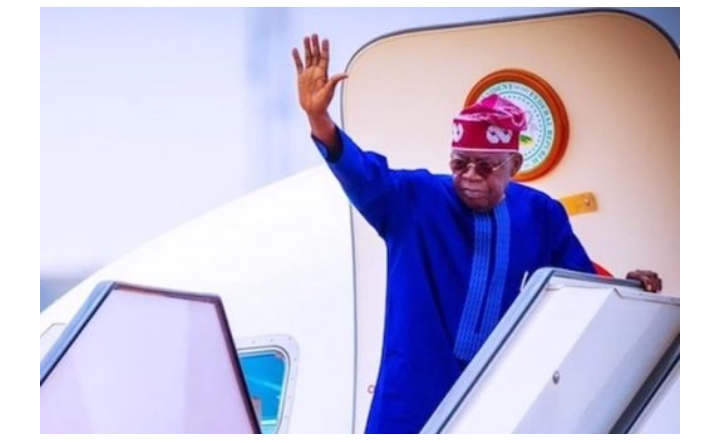
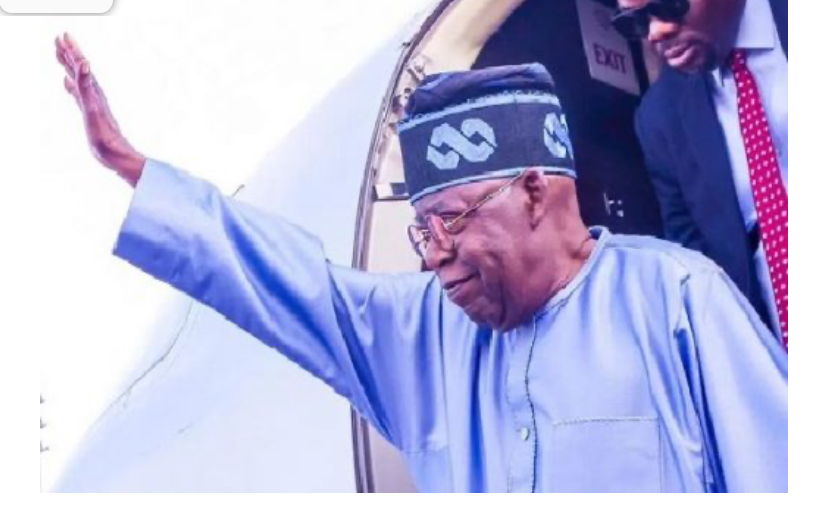
President Bola Tinubu will depart Abuja on Sunday, October 12, for Rome, the capital of Italy, to participate in the Aqaba Process Heads of State and Government Level Meeting, with special focus on the security crisis in West Africa.
The meeting, which will begin on October 14, will bring together Heads of State and Government, senior intelligence and military officials from African countries, and representatives of intergovernmental and non-governmental organisations to discuss the evolving security challenges in West Africa.
The Aqaba Process Meeting is a counter-terrorism initiative launched by King Abdullah II of Jordan in 2015. It is co–chaired by the Hashemite Kingdom of Jordan and the Italian Government.
It recognises the complex security challenges confronting West Africa, including the expansion of terrorist networks, the growing crime-terror nexus and the increasing overlap between land-based terrorism in the Sahel and the maritime piracy in the Gulf of Guinea.
At the meeting, participants will exchange assessments of the current security landscape in West Africa and foster collaboration between regional and international partners to address cross-border security challenges. Participants will also develop strategies to counter the terror threat on land and the sea.
The meeting will discuss ideas on how to coordinate efforts to combat online radicalisation and disrupt digital networks that facilitate terrorist propaganda and recruitment.
In addition to attending the plenary sessions of the Aqaba meeting, President Tinubu will hold bilateral talks with other leaders to explore ways of addressing the rising security challenges across the subregion.
The President will be accompanied by the Minister of State for Foreign Affairs, Ambassador Bianca Odumegwu–Ojukwu, the Minister of Defence, Mohammed Badaru Abubakar, the National Security Adviser, Nuhu Ribadu, the Director-General of the National Intelligence Agency (NIA), Ambassador Mohammed Mohammed, and other senior government officials.
news
2027 Election : All is set for the collapse of the PDP in Enugu As Mbah, Others Join APC
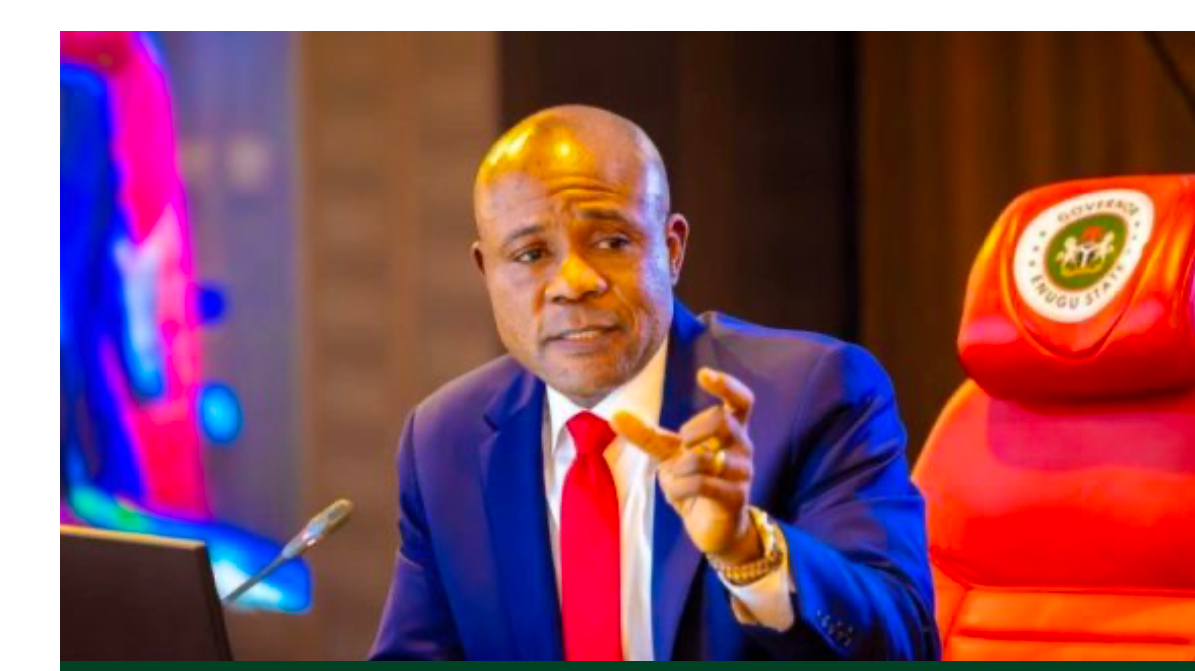
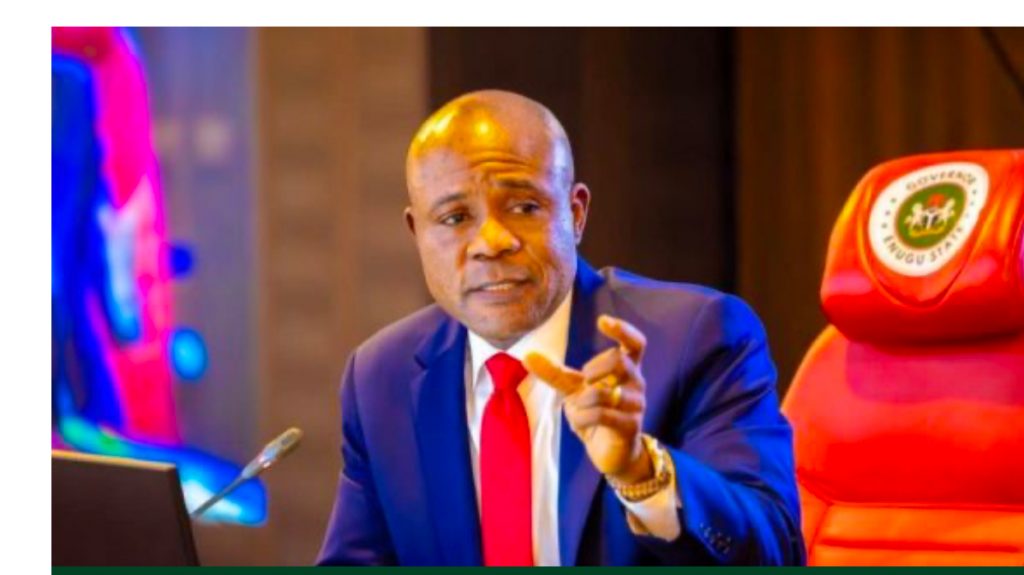 …..Gov, lawmakers, party executives exit party enmasse
…..Gov, lawmakers, party executives exit party enmasse
……Uncertainty over Suswam’s, ex-NAFDAC boss’ defection in Benue
…….PDP kicks, says govs being intimidated, coerced to defect
……Put your house in order, we’re not architect of your woes – APC
In a manner reminiscent of the defections that occurred in Delta and Cross River states earlier in the year, Governor Peter Mbah and all elected and appointive officers of the state are set to formally defect from the PDP to the All Progressives Congress (APC) on Tuesday next week.
The newly inaugurated Enugu State APC Caretaker Committee Chairman, Dr. Ben Nwoye, confirmed the development to newsmen at the APC National Secretariat in Abuja after taking the oath of office yesterday.
He made the disclosure during a press briefing by the newly inaugurated Enugu State Caretaker Committee.
Describing Mbah’s defection as the dawn of a new political era for Enugu and the Southeast region, Nwoye said the governor’s coming into APC would be “a merger between transformation and renewed hope.”
“For the past 10 years, Enugu State has remained in opposition. But all that ends on Tuesday when Governor Peter Mbah declares for the APC. And he is not coming alone,” Nwoye said.
According to him, the defection will signal a “historic alignment” as Mbah will be joined by 260 councillors, 24 state lawmakers, National Assembly members, and the entire state executive council—an unprecedented political realignment with President Bola Ahmed Tinubu’s Renewed Hope Agenda.
“Where Enugu goes, the Southeast goes. This marks the beginning of the Southeast’s political reawakening and full integration into national politics,” Nwoye said with a tone of confidence.
Commending the Governor Mbah’s performance in his last two years in office, Nwoye, who was the founding state chairman of the party, noted that his economic and infrastructural reforms had elevated the state to one of Nigeria’s top-performing states in internally generated revenue.
He added that the synergy between Mbah’s Transformation Agenda and President Tinubu’s Renewed Hope Vision would accelerate development and economic growth across the Southeast.
APC National Chairman, Prof. Nentawe Yilwatda, who inaugurated the seven-man caretaker committee for the party in the state, had earlier hinted of moves by the APC to strengthen its foothold in the Southeast.
The APC chairman charged the new Enugu leadership to consolidate the shock defection into a “lasting political conquest”
“APC is home for all. The person who came yesterday, today or tomorrow has equal rights.
Nigerian government services
Private refinery investment Nigeria
Digital trade agenda investment
“Our goal is simple: to expand, to win, and to deliver overwhelming victory in 2027,” Yilwatda said.
APC’s Deputy National Chairman (South), Emma Eneukwu, who is from the state, said the political development in the state marked the return of the Southeast region to national relevance.
“We will no longer play second fiddle. With Enugu in APC, the Southeast has found its voice again,” he declared.
Uncertainty over Suswam’s, ex-NAFDAC boss’ defection in Benue
There were strong rumours yesterday that Suswam, Orhii who currently serves as a member of the House of Representatives representing Agatu/Apa Federal constituency, Hon. Ojema Ojotu and former Benue North East Senator, Prof. David Iornem were set to join the APC in Benue State.
This was in spite of a statement issued by the media aide to Suswam dispelling the rumour that his boss had defected from PDP to the ruling party.
Banners and signposts announcing their official defection and pre-decamping dinner adorned major roads and streets in Makurdi, the state capital, yesterday.
It is the first time Suswam would defect to another party since joining politics in 1999.
The black cat, as the former governor is widely known first won an election to represent Katsina Ala, Logo and Ukum Federal Constituency in the House Representatives on the platform of the PDP.
After eight years in the House of Representatives, he was elected the governor of Benue State for another eight years also on the platform of PDP.
His first bid to go to the Senate, however, ended in a fiasco as he lost the election. He, however, made a second bid and won election into the Senate.
He had remained in PDP even after losing his re-election bid until yesterday when the news of his defection broke.
There was jubilation from Suswam’s massive camp of supporters yesterday on hearing that the former governor had defected to APC.
In Anyiin his country home and Ayilamo settlement, there was dancing and singing throughout the day, with shouts Dom Agya as Suswam is known in his ancestry home.
At press time yesterday, he was locked in a meeting with his supporters.
Our correspondence learnt that the meeting was meant to deliberate on the date for the defection ceremony.
But the media aide to Senator Suwswam, Bede Bartholomew, yesterday denied the claims that his boss had defected to APC.
Bartholomew however admitted that Governor Hyacinth Alia two days ago extended an invitation to Suwswam and other leaders for a banquet with him at Government House Makurdi.
A press statement he signed and made available to our correspondent yesterday reads: “Moments ago, I received telephone calls from well-meaning Benuelites and leaders alerting me to trending news on Benue’s social media space purporting that the former governor of Benue State, His Excellency Senator Gabriel Torwua Suswam, is set to defect to the All Progressives Congress (APC) today and would be received by the Governor of Benue State, His Excellency Governor Hyacinth Alia, this evening at the Banquet Hall of the Benue State Government House.
“I debunk this unholy rumour with all vehemence as it doesn’t represent the current interests of Senator Gabriel Suswam or that of his supporters across the state and should be treated as a mere rumour and that’s all.
“What I know is that two days ago, the Governor of Benue State HE. Rev. Fr. Hyacinth Alia respectfully extended an invitation to Sen. Suswam, among other stakeholders, expressing his desire to attend a State Banquet slated for 10th October, 2025.
“It should be noted that as a former Governor of the State, Suswam is a stakeholder in the Benue project, thus his reason for accepting the invitation.
“There was no indication in the invitation letter that it was a political event or a decamping ceremony whatsoever.
“The former governor advises his supporters and well-wishers to disregard this rumour as it is baseless, aimless, and a lie from the deepest pit of hell.
“Suswam appreciates everyone who called in for further enquiries and concerns and wishes everyone a happy weekend ahead.
Defections: Blame no one for your woes, says APC as PDP kicks
The ruling All Progressives Congress (APC) yesterday took a swipe at the Peoples Democratic Party (PDP), accusing the opposition party of being responsible for its woes as more of its members are dumping it for the governing party.
This came on the heels of plans by the PDP governor of Enugu State, Peter Mbah, and the entire elective and appointive officers of the state to defect to APC on Tuesday.
The PDP had on Thursday blamed the wave of defections from the party on APC, accusing the ruling party of engaging in intimidation and coercion of its elected members.
National Publicity Secretary of the party, Debo Ologunagba, while reacting to reports of the planned defection of some governors elected on the platform of the party to the APC, accused the ruling party for its misfortune.
“The APC is orchestrating all of this through intimidation, through coercion, through blackmail,” he said.
But APC National Publicity Secretary, Felix Morka, waved off the PDP allegation, insisting that the opposition party was only crying over a self-inflicted problem.
Dismissing the PDP allegation, Morka said: “The PDP continues to ridicule itself by the boring, repetitive and baseless claim that APC is, somehow, intimidating or cajoling its governors and other senior members to dump their wreck of a party.
“The PDP is the sole maker of its own political predicament. The party is only harvesting well-deserved adversity from decades of political recklessness, mindless corruption, ruthless desecration of democracy, disgraceful failure of leadership, and destructive impunity that characterised its existence.”
Justifying the defection to APC, Morka argued that “the governors and members that are dumping the party in their numbers are doing so in exercise of their free democratic will, and wisely so, to mitigate against the devastating fate that Nigerians will deal the party in the upcoming 2027 elections.”
news
Update : Police Arrest Armed Robbers Allegedly Involved in Death of Arise TV Anchor, Somtochukwu

 Police arrest armed robbers involved the killing of Somtochukwu Maduagwu
Police arrest armed robbers involved the killing of Somtochukwu Maduagwu
There are indications that 12 of the armed robbers involved the operation leading to the death of Arise News anchor, Somtochukwu Maduagwu have been arrested.
Somtochukwu Maduagwu, an anchor at Arise TV News panicked and jumped to her death after heavily armed robbers besieged her Katampe Extension home in Abuja.
It was reported that the robbers numbering about 15, well-armed, upon arriving the 18 blocks apartment estate, split themselves into groups and began robbing from flat to flat when 29 year old Sommie panicked and jumped down from her balcony to escape them before they arrived at her flat.
Our correspondence reports that attempts were made on the spot to revive her by a neighbor who gave her CPR before she was thereafter, rushed to the Maitama General Hospital where after trying to breathe life into her to no avail, the Doctors on duty declared her dead- on-arrival.
However, in a recent development, a Police EIB report released moments ago, indicates that 12 of the 15-armed robbery gang have been arrested by the Police in the Federal Capital Territory (FCT) Police.
Below is the EIB report released on Thursday…
Armed Robbers Involved In The Robbery That Led To The Death of Arise News Staff, Somtochukwu Maduagwu Arrested
According to the Police, the suspects are:
1. Shamsudeen Hassan ‘m’ from Malumfashi LGA Katsina state
2. Hassan Isah ‘m’, 22 years from Zaria kaduna State
3. Abubakar Alkamu a.k.a. abba ‘m’, 27 years from Musawa LGA katsina state
4. Sani Sirajo a.k.a. dan borume ‘m’ 20 years from Malumfashi LGA katsina state
5. Mashkur Jamilu a.k.a. abba ‘m’ 28 years from Igabi LGA kaduna state
6. Suleiman Badamasi a.k.a. dan-sule ‘m’ 21 years from Malumfashi LGA katsina state
7. Abdul Salam saleh a.k.a. na-durudu ‘m’ from katsina lga katsina State
8. Zaharadeen Muhammad a.k.a. gwaska ‘m’ 23 years from chikun lga kaduna state
9. Musa adamu a.k.a. musa hassan ‘m’ 30 years from malumfashi lga katsina state
10. Sumayya Mohammed a.k.a. baby ‘m’ 27 years from Sammaka LGA, Kaduna state
11. Isah Abdulrahman a.k.a. abbati ‘m’, 25 years from Zaria LGA, Kaduna state
12. Musa Umar a.k.a. small ‘m’ 31 years from Maiduguri LGA Borno state.
Shortly after the robbery incident, four (4) of the suspects shamsudeen hassan, alkamu, sirajo and one other person were apprehended through the tracking of phones stollen from the apartment during the robbery.
During interrogation, Shamsudeen Hassan confessed that he shot the security guard when he attempted to prevent them from gaining access to the apartment. Sani Sirajo confessed to have tried to hold Somtochukwu Christella Maduagwu from falling off the three-storey building but was overwhelmed by her weight. Shamsudeen further confessed that he drove the white honda CR-V jeep out of the apartment after the operation. The four suspects admitted that they each received ₦200,000 from the proceeds of the crime.
Recovered exhibits include:
One (1) fabricated ak-47 rifle
Thirty-six (36) rounds of 9mm live ammunition
One (1) locally made pistol
One (1) pump-action gun
Two (2) live cartridges
Four (4) mobile phones of the victims
Two (2) sharp knives
One (1) cutlass
Nine (9) torchlights used during the operation
In continuation of investigations, yesterday, 08/10/2025, acting on a tip-off and actionable digital intelligence also provided by us, the remaining members of the gang, Musa umar a.k.a. small, Hassan Isah and other accomplices involved in the Gishiri robbery were intercepted while enroute to an already planned armed robbery operation scheduled to hold at maitama in the early hours of this morning.
All suspects have confessed to the crimes, investigation is ongoing.
-

 news5 years ago
news5 years agoUPDATE: #ENDSARS: CCTV footage of Lekki shootings intact – Says Sanwo – Olu
-

 lifestyle5 years ago
lifestyle5 years agoFormer Miss World: Mixed reactions trail Agbani Darego’s looks
-

 health5 years ago
health5 years agoChairman Agege LG, Ganiyu Egunjobi Receives Covid-19 Vaccines
-

 lifestyle4 years ago
lifestyle4 years agoObateru: Celebrating a Quintessential PR Man at 60
-

 health5 years ago
health5 years agoUPDATE : Nigeria Records 790 new cases of COVID-19
-

 health5 years ago
health5 years agoBREAKING: Nigeria confirms 663 new cases of COVID-19
-

 entertainment9 months ago
entertainment9 months agoAshny Set for Valentine Special and new Album ‘ Femme Fatale’
-

 news5 months ago
news5 months agoBREAKING: Tinubu swears in new NNPCL Board


